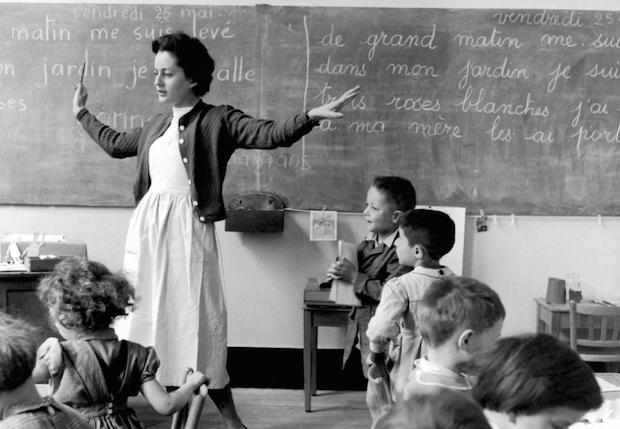French Back-to-School: La Rentrée (de réformes)
Uh-oh — it’s already la rentrée!
As the end of August approaches, students are getting ready to head back to school, people are returning back from vacation, and workers are heading back to work. In French, there’s an important word for all of this: la rentrée. Literally meaning “the return,” la rentrée refers to the period of time after August (normally the month is taken as a vacation for many in France) when the French return to school and work.
This rentrée is different than others that came before, however. Starting this year, new reforms in the French education system will take place. An article in Le Monde, titled “Programmes, vacances avancées, évaluations… ce qui va changer à la rentrée scolaire” describes all the changes that will take place for this rentrée scolaire (de réformes), from new programs, to a change in the vacation calendar, to a difference in how students are evaluated.

The first big change in the French education system this year is that there will be “moins de pression en grande section de maternelle (less pressure in kindergarten).” La grande section de maternelle is the term for kindergarten, while la petite section and la moyenne section are first and second years in nursery school, respectively.
In France, public education begins at age three with la petite section de maternelle. The goal here is to focus less on rote knowledge and memorization and more on basic understanding, socialization, and play. From the article: ”Plutôt que d’apprendre aux élèves à compter très loin, on s’assurera d’abord qu’ils comprennent bien le sens des nombres… (Instead of teaching students to count to large numbers, we will first ensure that they understand the meaning (or sense) behind numbers).”
Another changement is the introduction of an hour of “secular morality” in elementary school. This may sound strange if you are not familiar with French culture, but the French government is based on the ideal of laïcité, or secularism, where the state and religion do not mix at all.
According to the article: “La 'morale laïque'… sera enseignée une heure par semaine à l’école élémentaire, et deux heures par mois dans le secondaire. Cet enseignement, qui doit promouvoir les valeurs de la République, s’inscrit dans un 'parcours citoyen' décidé après les attentats de janvier à Paris, qui comprend aussi une éducation aux médias” Secular morality (or ethics) will be taught for one hour each week in elementary school, and for two hours each month in junior and high school. This education, which should promote the values of the French Republic, is inscribed in the “Citizens Guide”, which was decided (created) after the January terrorist attacks in Paris and which also includes an education in media studies).
There are several other reforms as well, including a mandatory 90 minute lunch break in schools and the changing of Spring vacation dates. An interesting debate is going on now as well about the efficacy of the French grading system, and even whether or not grades (les notes) should be done away with all together! Á suivre, et bonne rentrée!

Blog submitted by: Alex at The French Property Network - Cle France.
This blog was originally posted on The French Language Blog pages.
For everything you need to know about French property visit www.clefrance.co.uk